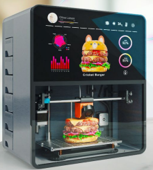世界中で食品ロスへの関心が高まっている。日本においても同様で世界の年間食糧支援量の約1.2倍にあたる量を出しており,早急な対応が求められている。そこで本来廃棄されてしまっていた可食部分を再利用する3Dプリント食品を用いることで,食品ロス削減へ貢献することが出来ると期待されている。しかしながら,日本における3Dプリント食品の認知度は依然として低いままである。そのため本研究の目的は,食品ロスの対応として期待される3Dプリント食品の消費者受容分析を行い,3Dプリント食品の購買意欲モデルを構築し購買行動に至るまでの心理的要因を明らかにし,マーケティング戦略を提案することである。分析を行う前に,先行研究に基づいて3Dプリント食品の購買意欲に関連すると考えられる仮説を立て概念モデルを構築した。その概念モデルに基づいてSEMを行った。結果としてモデルの適合度は基準を十分に満たしており,仮説はすべて有意で正であった。また今後3Dプリント食品を普及していくためには,エシカル消費とデジタル・マーケティングの観点を重要視する必要があると考えられる。
Interest in reducing food waste is increasing worldwide. In Japan, the annual food support amount is about 1.2 times that of the world, and prompt action is needed. Therefore, the use of 3D printed food, which repurposes edible parts that would otherwise be discarded, is expected to contribute to reducing food waste. However, the awareness of 3D printed food in Japan remains low. Hence, the purpose of this research is to conduct a consumer acceptance analysis of 3D printed food, which is expected to address food waste, construct a purchase intention model for 3D printed food, and uncover the psychological factors leading to purchase behavior. The ultimate goal is to propose marketing strategies.Before conducting the analysis, hypotheses related to purchase intention for 3D printed food were developed based on previous studies, and a conceptual model was constructed. Structural Equation Modeling (SEM) was then performed based on this conceptual model. The results showed that the model fit the criteria sufficiently, and all hypotheses were significant and positive. Furthermore, it is believed that, for the future adoption of 3D printed food, emphasizing ethical consumption and digital marketing perspectives will be crucial.
学会名
第12回マーケティングカンファレンス2023
発表タイトル
3Dプリント食品の消費者受容分析
著者名
四木 稜馬・徐 維那
DOI
日本マーケティング学会 – カンファレンス2023 (j-mac.or.jp)
引用
四木稜馬、徐維那(2023)3Dプリント食品の消費者受容分析、第12回マーケティングカンファレンス2023、東京、日本


